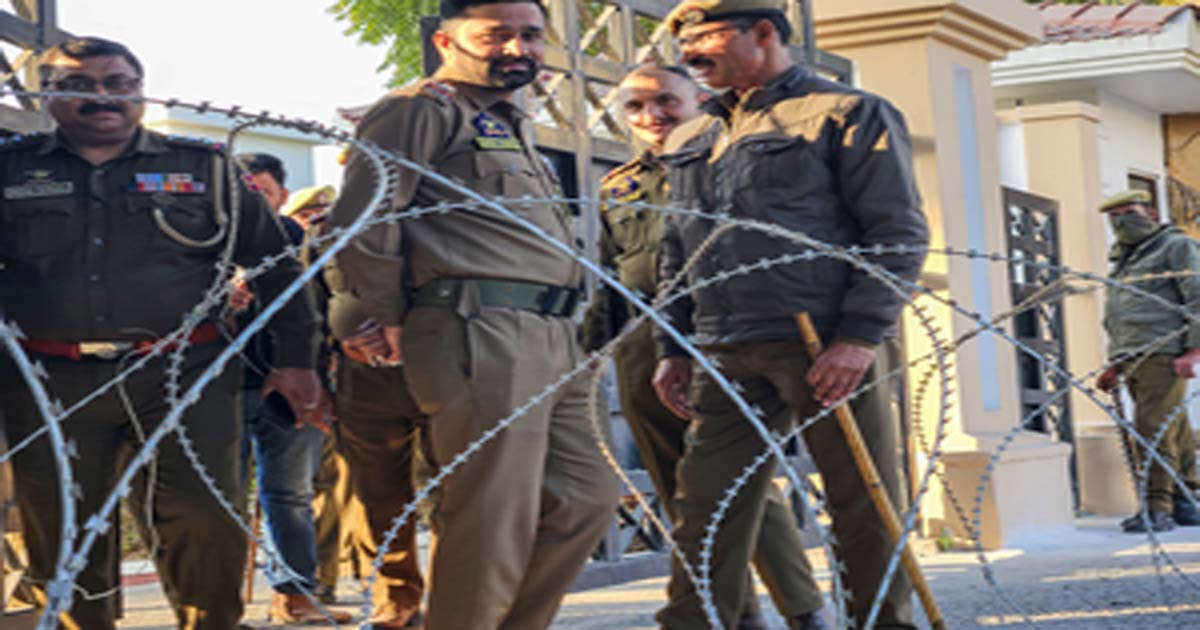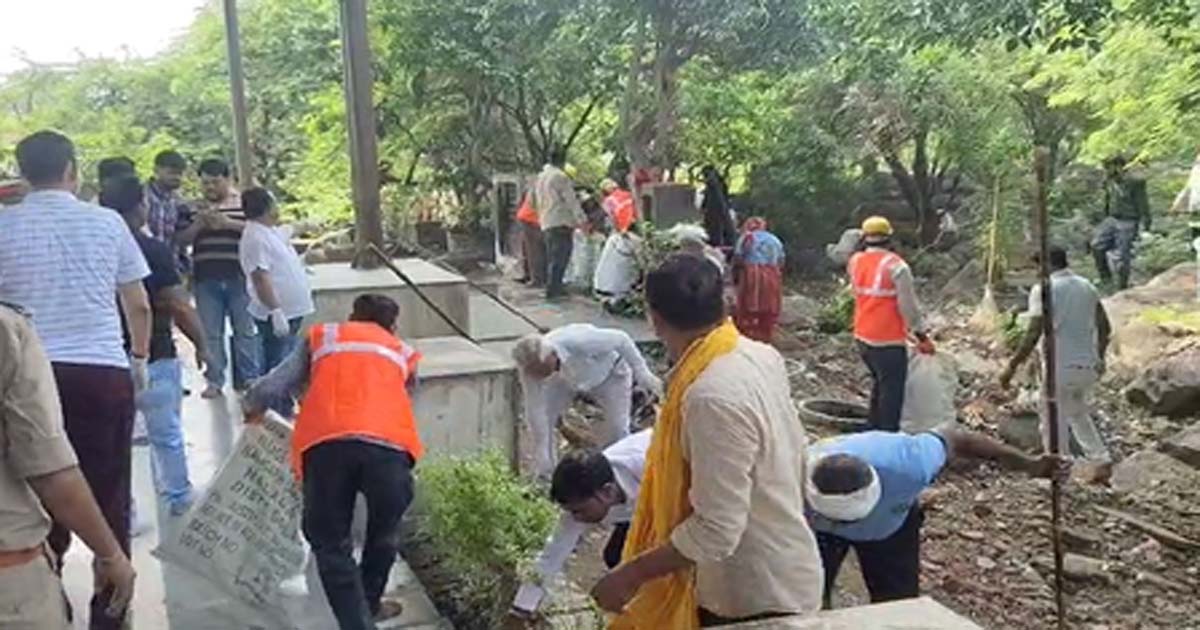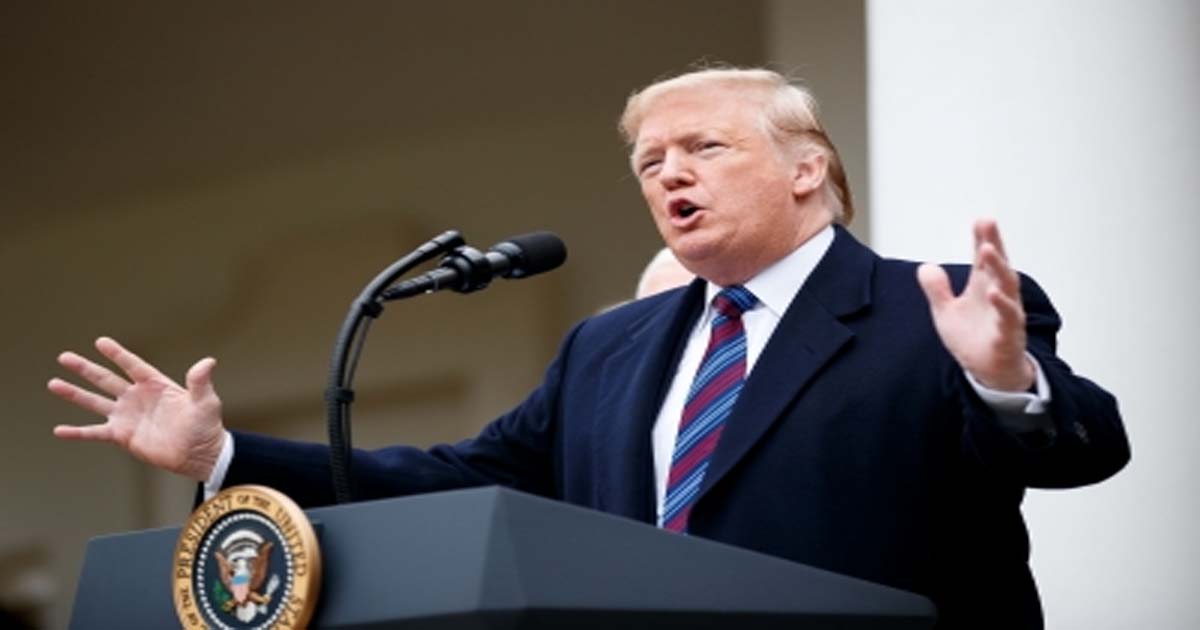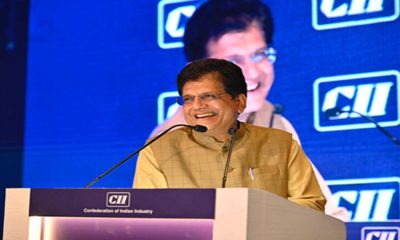Business
GST for packaged food: Rice will become costlier in TN

The decision of the government of India to levy 5 per cent Goods and Service Tax (GST) on packaged food may increase the price of rice from Rs 3 to Rs 5 per kilogram in Tamil Nadu from Monday.
The Tamil Nadu rice mills association and traders in a statement on Sunday said that the centre has issued notification bringing rice, maize, and other essential food commodities under 5 per cent GST from July 18 onwards.
The rice merchants and rice mill association have urged the Tamil Nadu government to exert pressure on the Union government for a roll back to bring the food products under GST. Around 3000 rice mills and thousands of rice merchants had protested against bringing the essential commodities under GST slab and had shut shop on Saturday.
The rice mill owners and rice merchants had in a petition to Chief Minister M.K. Stalin, stated that according to the Supreme Court rulings, GST recommendations are not binding for the state government.
M. Sivanandan, State Secretary, Tamil Nadu Rice mill owners association, while speaking to media persons said: “The GST council had imposed taxes on registered rice brands in 2017 but had exempted unregistered brands. The exemption is now withdrawn and all pre-packed rice brands will now have 5 per cent GST.
While loose rice may not fall under the ambit of GST, the state food department has directed all shopkeepers to ensure that rice and other food products are sold in packed form under the FSSAI Act.
Several mill owners, however, said that implementing 5 per cent GST from Monday may not be practical as many of these mills don’t have GST numbers. The mill owners want more time for the mills to get GST numbers.
National
Police in Srinagar attach property worth Rs 1.5 crore under UAPA

Srinagar, July 5: Continuing its drive against terrorism, Jammu and Kashmir (J&K) Police in Srinagar district on Saturday attached property worth Rs 1.5 crore under the Unlawful Activities Prevention Act (UAPA).
A police statement said on Saturday, “In a decisive move against the terror ecosystem and to dismantle its supporting infrastructure, Srinagar Police has attached a residential property — comprising 8 marlas and 202 sq. ft. of land along with the building structure— estimated to be worth approximately Rs 1.5 crore.
“The property, located at Mir Masjid Mohalla, Shallabagh Khanyar, and falling under Survey Nos. 3674/1147 and 3677/1148, is recorded in the name of Mohammad Yousuf Shah son of Hafiz Waliuallah Shah.”
The police statement added, “It is currently in the possession of Masood Hussain Shah son of Mohammad Yousuf Shah. The attachment has been carried out under the relevant provisions of the Unlawful Activities (Prevention) Act (UAPA) in connection with FIR No. 48/2024 under Sections 109 of the Bharatiya Nyaya Sanhita (BNS), 7/27 of the Indian Arms Act, and Sections 16, 18, 19, 20, and 39 of the UAP Act, registered at Police Station Khanyar.
“Investigations have established that the property was acquired through illegal proceeds linked to terrorist activities. Acting under Section 25 of the UAP Act, the immovable property has been formally seized and attached following due legal procedure.
“Through this attachment notice, the owner is prohibited from selling, leasing, or transferring the said property in any manner. This action is part of the sustained campaign of Srinagar Police to dismantle the terror ecosystem in a systematic manner.
“By targeting and crippling the financial networks of terrorist organisations, Jammu & Kashmir Police aims to curb acts detrimental to the security and integrity of the nation. Srinagar Police reiterates its unwavering commitment to eradicating terrorism and safeguarding public peace.”
National
World-famous Mudiya Mela in Govardhan from tomorrow, cleanliness campaign launched

Govardhan (UP), July 5: As the world-famous Mudiya Mela will kick off in Uttar Pradesh’s Govardhan on Sunday, authorities have launched a cleanliness campaign.
Over 2 crore pilgrims are expected to reach Govardhan for the mela and perform Parikrama.
The cleanliness campaign, led by District Magistrate C.P. Singh, started on Saturday and focussed on cleanliness in key areas, including Parikrama Marg, Daanghati temple, and Giriraj ji.
DM Singh swept the land near the Govardhan temple, spreading the message of cleanliness.
As per the directions of the Uttar Pradesh government, efforts are being made to provide pilgrims with proper facilities and clean surroundings, he said.
The District Magistrate said people use polythene bags and indulge in littering as they don’t care about cleanliness, but now, as prior warnings have been given, strict action will be taken against violators.
The DM pointed out that maintaining cleanliness in the area was the responsibility of the temple management, but as it failed, “our team and locals of Govardhan are carrying out the cleanliness drive.”
Highlighting the importance of cleanliness, DM Singh said, “We aim to clean the entire Parikrama marg.”
He also shared that notices have been issued to those shops which have encroached on public land. The cleanliness campaign was made successful with the efforts of Govardhan SDM Neelam Srivastava, Govardhan Tehsil and Panchayat.
For the unversed, Mudiya Mela is observed in remembrance of Sanatan Goswami, the principal disciple of Lord Chaitanya Mahaprabhu.
Legends have it that when Sanatan Goswami passed away, his disciples did parikrama of the Govardhan after tonsuring their heads. Since then, this tradition has been followed.
Notably, the 468-year-old tradition continues to draw a sea of devotees.
The devotees perform a 21-km-long Parikrama of Govardhan.
The belief with the yatra is that it bestows peace and prosperity on the devotees.
Business
12 nations to get US tariff letters on Monday, says Trump

New Delhi/Washington, July 5: US President Donald Trump has signed tariff letters on exports from 12 countries, which are expected to be sent out on July 7 (Monday).
Speaking to the media aboard Air Force One, the US President said the names of the countries which will receive the letters would only be revealed on Monday.
“I signed some letters and they’ll go out on Monday, probably 12. Different amounts of money, different amounts of tariffs,” he told reporters.
“The letters are better. It is much easier to send a letter,” Trump added.
Trump has suggested that the reciprocal tariffs could go even higher, potentially reaching 70 per cent for some countries, and take effect from August 1.
The US President in April unveiled a base tariff of 10 per cent on most goods entering the country, along with higher rates for certain countries, including China. Those elevated tariffs were later suspended till July 9.
Washington has concluded trade agreements with two countries – the United Kingdom and Vietnam.
Meanwhile, India’s high-level official delegation, led by chief negotiator Rajesh Agrawal, has returned from Washington without reaching a final agreement with US officials on the sensitive issue of trade in agricultural and dairy products that the US is pushing for.
However, there is still a glimmer of hope that an interim bilateral trade agreement may be reached at the highest political level in the two countries before the July 9 deadline.
The Indian team was in Washington for negotiations on an interim trade agreement with the US from June 26 – July 2.
According to Commerce Minister Piyush Goyal, India will not hurry into signing a free trade agreement under pressure from any deadline.
Speaking on the sidelines of an event in the national capital, Minister Goyal emphasised that India is ready to make trade deals in the national interest but it “never negotiates trade deals with a deadline”.
The US is seeking broader market access for its agricultural and dairy products, which is a major hurdle, as for India, this is a livelihood issue for the country’s small farmers, and hence, is considered a sensitive area.
While India is looking to secure an exemption from President Trump’s 26 per cent tariffs by concluding an interim deal before July 9, it is also pushing for significant tariff concessions for its labour-intensive exports such as textiles, leather and footwear.
-

 Crime3 years ago
Crime3 years agoClass 10 student jumps to death in Jaipur
-

 Maharashtra9 months ago
Maharashtra9 months agoMumbai Local Train Update: Central Railway’s New Timetable Comes Into Effect; Check Full List Of Revised Timings & Stations
-

 Maharashtra9 months ago
Maharashtra9 months agoMumbai To Go Toll-Free Tonight! Maharashtra Govt Announces Complete Toll Waiver For Light Motor Vehicles At All 5 Entry Points Of City
-

 Maharashtra9 months ago
Maharashtra9 months agoFalse photo of Imtiaz Jaleel’s rally, exposing the fooling conspiracy
-

 Crime9 months ago
Crime9 months agoBaba Siddique Murder: Mumbai Police Unable To Get Lawrence Bishnoi Custody Due To Home Ministry Order, Says Report
-

 National News9 months ago
National News9 months agoMinistry of Railways rolls out Special Drive 4.0 with focus on digitisation, cleanliness, inclusiveness and grievance redressal
-

 Maharashtra8 months ago
Maharashtra8 months agoMaharashtra Elections 2024: Mumbai Metro & BEST Services Extended Till Midnight On Voting Day
-

 National News10 months ago
National News10 months agoJ&K: 4 Jawans Killed, 28 Injured After Bus Carrying BSF Personnel For Poll Duty Falls Into Gorge In Budgam; Terrifying Visuals Surface






















